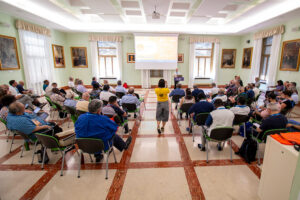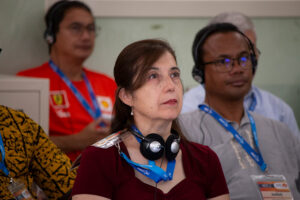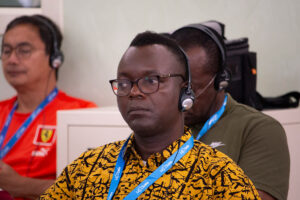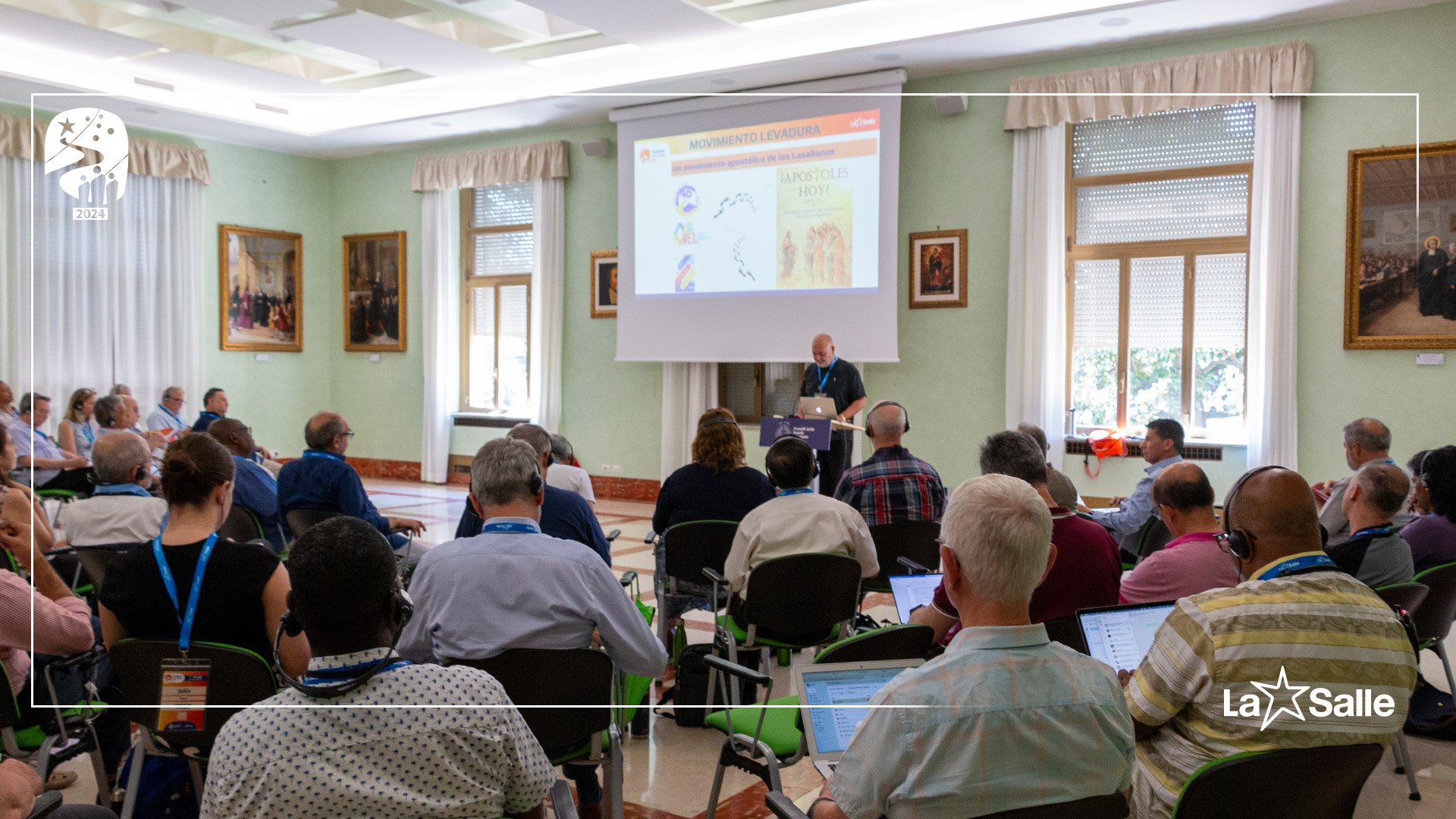 “Interconnectedness and cross-pollination have changed the course of the evolution of life and allowed it to reach more complex levels of organisation, including our organisation”. This was stated by Brother Ricardo Laguda during one of the first sessions of the 2024 Plenary Assembly, which is taking place at the De La Salle Brothers’ Generalate in Rome from 8 to 12 July.
“Interconnectedness and cross-pollination have changed the course of the evolution of life and allowed it to reach more complex levels of organisation, including our organisation”. This was stated by Brother Ricardo Laguda during one of the first sessions of the 2024 Plenary Assembly, which is taking place at the De La Salle Brothers’ Generalate in Rome from 8 to 12 July.
In his presentation on “the art and science of network governance”, the Lasallian religious, who is a member of the General Council, also recalled that “networks are dynamic, they take the initiative”, and “become the vehicle for redirecting information flows and decisions, uses of power and influence, and sources of feedback within the hierarchy”.
 The Filipino religious said that “as Institute and Lasallian Family, we need to take advantage of new strategic networking mechanisms (“together and by association” with a compelling purpose) that go beyond personal and operational networking”, as “strategic networking needs to complement the new organisational structure that has been introduced since June 2022”.
The Filipino religious said that “as Institute and Lasallian Family, we need to take advantage of new strategic networking mechanisms (“together and by association” with a compelling purpose) that go beyond personal and operational networking”, as “strategic networking needs to complement the new organisational structure that has been introduced since June 2022”.
In this way, “as an organisation advancing the educational mission, we can learn to build and use strategic networks that cross organisational and functional boundaries, and then link them through new and innovative means,” concluded Br. Ricardo in his presentation, after which Assembly participants engaged in table discussions where they reflected and discerned “on the importance of formation, the sharing of human and financial resources, and on the impact that technology is having on education and on Lasallian pedagogy,” as remarked Brother Robert Schaefer, Visitor of the District of Eastern North America (DENA).
Promoting co-responsibility

Likewise, for the Mexican Adriana Bolaños, who is a member of the International Council for Lasallian Association and the Educational Mission (CIAMEL), network governance implies “fostering co-responsibility between Lasallians in different places (…) to have a broader, more global vision, which will allow us (…) to discover all that people can give us and (…) to approach other realities knowing that we can also learn from them“.
In the view of Mourad Barsoum, Director of the Office of Vocations and Volunteer Ministry, “all Lasallians are called to build bridges, we need to open communications (…) and the Offices of the Institute offer our services to make this possible together with the Regions and Districts”.
 At the end of the day, Brother Pie Nsukula, Visitor of the District of Congo – Kinshasa, said that the methodology and the working groups “are an opportunity to express ourselves freely (…). We have really benefited from listening to others, from knowing what is happening in other places”, said the Congolese religious. “I thank God for this Plenary Assembly and I am sure that, in the end, all that we are going to share with each other will really contribute to the good functioning of the Lasallian educational mission throughout the world”, he concluded.
At the end of the day, Brother Pie Nsukula, Visitor of the District of Congo – Kinshasa, said that the methodology and the working groups “are an opportunity to express ourselves freely (…). We have really benefited from listening to others, from knowing what is happening in other places”, said the Congolese religious. “I thank God for this Plenary Assembly and I am sure that, in the end, all that we are going to share with each other will really contribute to the good functioning of the Lasallian educational mission throughout the world”, he concluded.
Asimismo, para la mexicana Adriana Bolaños, quien hace parte del Consejo Internacional de Asociación y Misión Educativa Lasaliana (CIAMEL), la gobernanza en red implica “fomentar la corresponsabilidad entre los lasalianos de diferentes lugares (…) para tener una visión más amplia, más global, que nos permita (…) descubrir todo lo que las personas nos pueden dar y (…) acercarnos a otras realidades sabiendo que de ellas también podemos aprender”.



